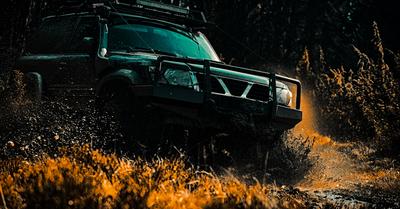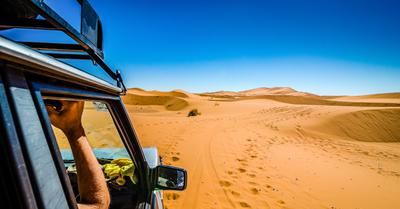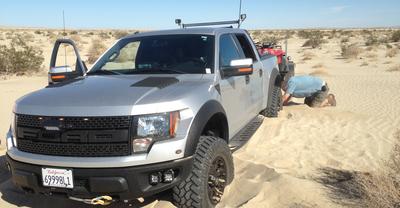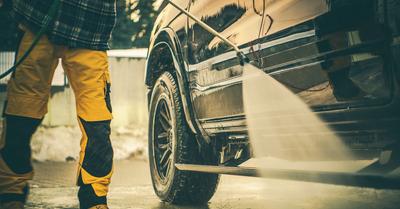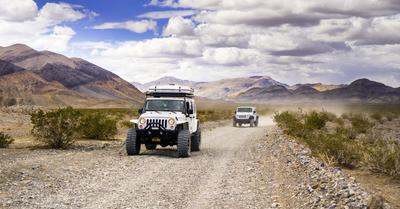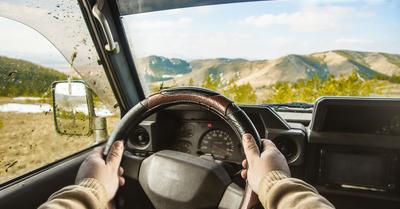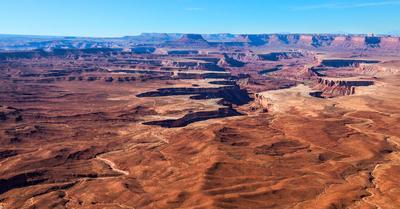An off-road recovery business can be extremely profitable and rewarding, provided you take the right steps in the beginning.
To start an off-road recovery business, you’ll first have to develop a business plan and register your new company. You can talk to the bank and get a loan for equipment, as you’ll also need a capable off-road recovery truck and tools.
In this article, we’ll go over all of the biggest and most important steps to starting an off-road recovery business. We’ll go over loans, business plans, and how to choose the right tow vehicle for your company. Additionally, we’ll cover several ways to keep your business running during the off-season.
We sourced the information in this article from reputable sources, and we analyzed other off-road recovery businesses to develop the best strategies.
This article may contain affiliate links where we earn a commission from qualifying purchases.
Develop a Business Plan
A business plan is a basic outline of your company’s intentions, business strategy, what you do, and how you plan to grow. This is absolutely essential when starting a business, as it can help you identify areas to focus on. Additionally, others can review it and provide feedback.
A business plan can help you visualize your project as a whole and better plan for implementation. It’s also a necessity if you want a loan from a bank, which may be necessary if you don’t want to front the cash for equipment upfront.
Developing a business plan is easier than ever, as there’s a wealth of information online about virtually every kind of business. You can also use digital tools such as LivePlan to develop your business plan and track your performance over time.
Create Your Company
Before going into the off-road recovery business, you’ll need to create a company for liability and tax purposes. Most owner-operator recovery businesses file as an LLC or Limited Liability Corporation.
Forming an LLC is a fantastic idea because it shields you and your assets from certain kinds of litigation and allows you to write off business expenses more easily. For example, much of your operating costs can be written off, and you can register your vehicle to the company.
There are many types of businesses you can form, and you should get a lawyer to help you through the process. It’ll be a bit costly, but it’s worth it to have legitimate legal counsel explain the rules and cut through the red tape.
Get a Loan if You Need One
The majority of businesses take out loans when they’re first starting out, and some continue working with lenders indefinitely. A business loan is a legitimate way to cover all of your early expenses when you’re not generating income and to help you acquire the costly equipment you’ll need to compete.
Business loans are different from personal loans. Having stellar credit helps, but the minimum requirement is usually a score of 500. Business loans have different rules as well, which the bank or a lawyer can explain in more detail.
For most sizable loans, you’ll work directly with a banker in person or remotely. You’ll have to present the bank with a solid business plan to convince them, especially if your credit is below the ideal level. But almost anyone with average credit and a rock-solid business plan can get a loan.
Get a Capable Tow Vehicle and Equipment
You’ll need a vehicle for off-road recovery, and you might need more than one. And since you’re an off-road recovery business, your vehicle will probably have to be off-road capable too. This is where the big money comes in, as a suitable off-road tow rig can cost upwards of $50,000–even used.
However, designing and modifying a vehicle for the job is one of the coolest parts about it. If you include a tow service, you’ll get to outfit a big 3/4-ton or 1-ton truck into a full off-roading recovery rig. Most people get creative and add light bars and other things to make it as capable as possible.
Off-Road Tow Trucks
Off-road tow trucks are the most profitable sector of the business. They’re usually 3/4-ton or 1-ton diesel trucks with the shortest possible wheelbase for maneuverability. Think single-cab F250 with an off-road bumper and a tow rig on the back.
Your truck will need a winch upfront and in the rear, along with a crane for lifting vehicles that need to be towed. Alternatively, you can use a trailer for off-road towing, though the trailer is usually the weakest link in the system. Special towing rigs should be used that allow for extreme angles.
Single Vs Dual Rear-Wheels
Many off-road recovery tow trucks are duallys, as they have better grip and traction on loose surfaces. Every reasonable off-road tow truck is four-wheel-drive, as this is a necessity. But dual rear wheels can also be a hassle off-road, especially if the trails in your area are particularly narrow.
When dual rear wheel systems are too wide for your region, then big tires on a single rear wheel truck should do the trick. You might also want to consider lifting the truck and adding large off-road tires for maximum traction.
Gas Vs Diesel Power
Diesel, 100%, all the way—with one exception. Diesel trucks are the best choice in all areas except where it’s exceptionally cold. Any diesel owner in Northern Minnesota or Wyoming can tell you why. Diesel engines have the torque to haul big loads and the longevity required to get a return on your investment.
Off-Road Recovery Tools
In addition to a capable four-wheel-drive tow truck, you’ll need a whole host of tools. People call off-road recovery services for all kinds of things—from moving dead vehicles over to the side of the trail to getting an extra couple gallons of fuel.
Your truck should be a home base where you carry everything you need. This includes tools for replacing wheels and tires, patch kits, inflators, jacks, recovery boards, cable, tow straps, flares, firefighting equipment, and a range of hand tools for making quick repairs.
Be the guy with the extra tools. You won’t regret it. An off-road recovery company that can perform minor repairs and fills up an empty gas tank is much more valuable to off-roaders than a tow-only service.
Get Insurance
Here’s the least fun part of the process. You’ll need a comprehensive insurance policy to cover your business, and you’ll need it before you begin operating (even for free). Tow truck insurance is notoriously expensive, but shopping around and finding the best value can save you a significant amount of money.
Off-Road Recovery During the Off-Season
If you live in an area where it snows, don’t think you’re out of luck for the winter. Your truck is extremely capable, and there is plenty of seasonal work to do when it's cold out.
Plowing is the first thing that comes to mind. Getting a plow and working with your neighbors or the city can get you thousands of dollars each season, and you’ll also be spreading the word about your primary business.
You can also be hired as a contractor to get vehicles unstuck from the snow and ice, and you can make extra money clearing out crash debris from winter-related accidents. People need a tow in the winter all the time, so serving as an emergency tow service is also an option.
You can offer grating services for farm and gravel roads and a whole host of other road maintenance jobs as well.


